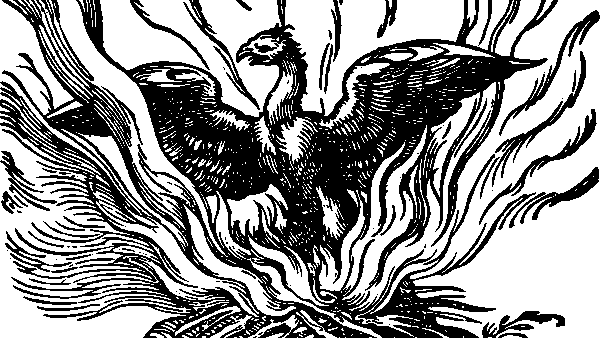 So it’s week 3 of German Literature Month, organised by Lizzie and Caroline. We’re reading Effi Briest by Theodor Fontane.
So it’s week 3 of German Literature Month, organised by Lizzie and Caroline. We’re reading Effi Briest by Theodor Fontane.
I found it a little implausible at the time, because it was such a huge risk for her to take, and she must have known what the consequences would be if Innstetten found them. But I can see that the affair meant a lot to Effi, even though I don’t think she had very deep feelings for Crampas himself. Innstetten is emotionally constipated, and Effi probably wanted to be reminded of a time when a man truly desired her, and to read words of passion.
Did Innstetten have a choice?Yes, definitely. He says he has no choice, but that’s because of the importance he attaches to following social rules and being seen to do the right thing. In his conversations with his friend, he even admits that he probably doesn’t need to do what he’s doing, but his justifications are all about what people will think of him, not about his own feelings. He kills Crampas and discards Effi not because he is hurt or outraged, but because he thinks that it is expected of him.
Are there any events in this final section that make you feel outraged? Is that how Fontane wants you to feel?I wouldn’t say ‘outraged’, but I certainly felt that the way Effi was treated was unjust. She committed adultery, yes, but the coldness with which her husband and parents banish her and cut her off from her own child is hard to take. I get the impression that Fontane did want us to be outraged. Innstetten killed a man, a far worse crime than Effi’s, but he followed the social rules of the time and so gets rewarded. Effi’s parents – at first, anyway – think more of protecting their social status than of supporting their only child.
Is there a villain in this piece?Not really, and I think it’s one of the strengths of the book. The characters all play a role in the tragic outcome of the story, and some of their actions are pretty despicable, but ultimately Effi’s fate is decided more by the absurd social norms that govern the characters’ actions. So it’s more society that is the villain.
Discuss Effi’s reaction to her mother’s accusation “You brought it on yourself”.Effi seems completely accepting of her fate at the end of the book. She knows she did wrong and never tries to shirk personal responsibility. It makes her very attractive as a character, especially since it is so clear to the reader that the punishments against her are unnecessarily harsh. Fontane lets the events speak for themselves, and I sympathised with Effi even more because she didn’t complain about her fate. By the end, like Crampas, she almost seems to welcome death.
The lot of the real-life Effi, Elizabeth von Plotho, was a much happier one. Why do you think Fontane made the outcome for Effi much harder?I think that Fontane wanted us to feel outraged at Effi’s fate. The people in the book who are the most genuine and kind-hearted either get crushed, like Effi, or have little status, like Gieshubler. Meanwhile those who follow the rules while being blind to humanity are rewarded for it. I think there’s a real commentary here on the prevailing social order, and Fontane probably made the outcome much harder in order to make her more clearly a victim of that social order.
Were you surprised by the ending?No – as I mentioned in week 2, the back cover of my edition more or less gave away the ending. It was also foreshadowed quite extensively all through the book. The pleasure for me in this book was not about surprises or twists in the plot, but about the way in which Fontane gets us to identify completely with the characters, and explores subtle themes through his skilful use of detail and symbolism.
Do you think you would ever reread Effi Briest?I’m not a great rereader – there are so many new books to discover! So realistically, probably not, but I can certainly see that the book would deserve a second or third read. Thanks to Lizzie and Caroline for introducing me to it!



There are 8 comments
Having watched a film version, I’m now a little more sympathetic towards Innstetten (and detest the mother even more!). Effi herself… well, that’s a difficult one. There are definitely moments, like her meeting with Annie, when she’s not quite as likeable as usual. Still, her acceptance of her portion of the blame does raise her above Anna Karenina and Emma Bovary in my book 🙂
The biggest villain in this book is the society and I think Fontane does show this very well- However I alos thibk he blames tthose who support the society with too much enthusiasm, like mother and Instetten. I was thinking a few times that these two would have been perfect for each other.
I didn’t even realize before I read your answer that taking a man’s life seems to be more acceptable than committing adultery.
Nice post, Andrew! I liked your observation abouts society being the villain. I also liked your comment on how killing a man is regarded as okay just because it is approved by the social norms.
It’s very interesting to read your thoughts.
“emotionnally constipated” excellent way to describe Innstetten.
I agree with you, the villain is the society. They are all so obedient.
Innstetten is pitiful in his way to surrender to the rules. I couldn’t help thinking of how he would have acted in WWII. Exactly the kind of civil servant unable to put a file under the carpet to give some air to anyone. He can’t even give air to himself!
It’s like in this story by Thomas Hardy when a man has such a delicate conscience that he tries to repair a wrong by a right that takes by storm perfectly ordered lives.
Hi Tony, I haven’t seen the film – would be interested to see how the depictions vary. Was it quite close to the book in general?
Hi Caroline, yes, I agree that he blames those who support society too much. You’re right, the mother and Innstetten would have been a much better match. I couldn’t quite make out Effi’s father – he seems not to be particularly enthusiastic about society, but lacks the courage to be actively against it. He just gives up and says it’s “too vast a subject”!
Vishy, yes it does seem crazy that killing a man becomes minimised, less of a sin than adultery! We still do that in some situations today, of course, like in war or with the death penalty in some countries. But good that it’s much more limited!
I like your comparison to WWII, Emma – definitely Innstetten would be the sort of person to go along with whatever he was told, do his duty efficiently and not consider the human or moral implications. Definitely not the type to turn a blind eye!
I read this too and thought it was quite good. I think Effie’s acceptance of her fate was written like that because the author wouldn’t have been able to write any alternative without arousing scandal. Perhaps I’m wrong. It was an adventurous book for the time I’m sure.
Like you I rarely re-read a book – there are just so many new one’s to try